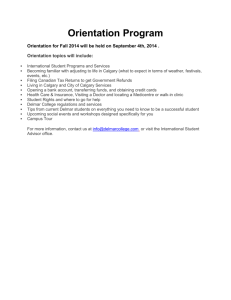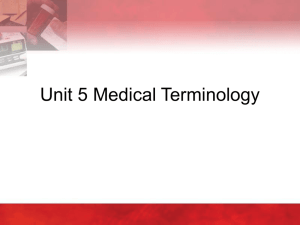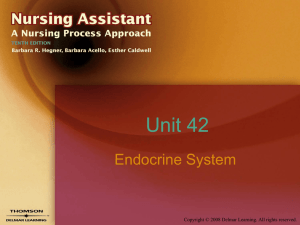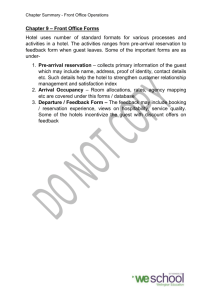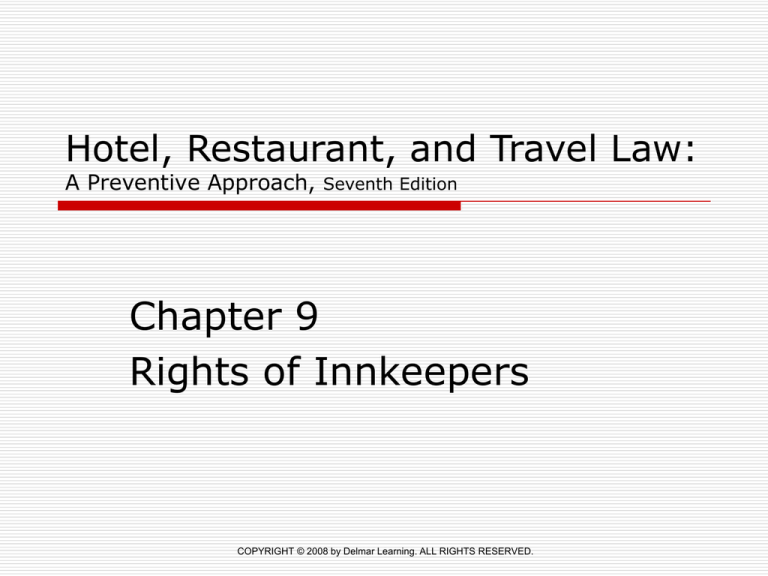
Hotel, Restaurant, and Travel Law:
A Preventive Approach,
Seventh Edition
Chapter 9
Rights of Innkeepers
COPYRIGHT © 2008 by Delmar Learning. ALL RIGHTS RESERVED.
Introduction
Patrons are the lifeblood of hotels and
restaurants
Unruly or belligerent customers can
Interfere with the enjoyment of other patrons
Damage the reputation of the business
Hotels and restaurants may not want to serve
such people
COPYRIGHT © 2008 by Delmar Learning. ALL RIGHTS RESERVED.
Right to Exclude Nonguests
Innkeepers and restaurateurs extend an
implied invitation to all, including
nonguests, to enter their facility
Public’s presence on the premises does not
constitute trespass
Trespass—legal wrong consisting of
entering or remaining unlawfully on a
premises
COPYRIGHT © 2008 by Delmar Learning. ALL RIGHTS RESERVED.
Right to Exclude Nonguests
(continued)
Implied license for nonguests can be
revoked by the innkeeper at any time
Persons entering a hotel who are not
guests and do not intend to contract
for a room are required to leave the
premises if asked
COPYRIGHT © 2008 by Delmar Learning. ALL RIGHTS RESERVED.
Right to Exclude Nonguests
(continued)
Person who has been requested to
leave and fails to do so becomes a
trespasser
Operator may use reasonable force to
evict a trespasser—only after being
asked and trespasser refuses
COPYRIGHT © 2008 by Delmar Learning. ALL RIGHTS RESERVED.
Right to Exclude Nonguests
(continued)
Only amount of force that is
reasonably necessary to remove
trespasser is permitted
More force than is reasonably
necessary is considered excessive
force and may be grounds for a
lawsuit
COPYRIGHT © 2008 by Delmar Learning. ALL RIGHTS RESERVED.
Right to Exclude Nonguests
(continued)
Best practice
police
(if time permits)
is to call the
Officers are trained how to effectuate the
removal of a troublesome patron
COPYRIGHT © 2008 by Delmar Learning. ALL RIGHTS RESERVED.
Refusing Lodging to a
Would-Be Guest
A hotel cannot refuse accommodations
to anyone seeking them if rooms are
available
True regardless of the time of the
guest’s arrival
COPYRIGHT © 2008 by Delmar Learning. ALL RIGHTS RESERVED.
Refusing Lodging to a
Would-Be Guest (continued)
Exceptions:
Hotel has no vacancies
No vacancies can exist even if rooms are
unoccupied
Being painted, refurbished, repaired
Being held for reservations
COPYRIGHT © 2008 by Delmar Learning. ALL RIGHTS RESERVED.
Refusing Lodging to a
Would-Be Guest
(continued)
Exceptions:
(continued)
Can refuse persons who are:
Criminals
Intoxicated
Disorderly
Unclean and unkempt
Suffering from contagious disease
COPYRIGHT © 2008 by Delmar Learning. ALL RIGHTS RESERVED.
Refusing Lodging to a
Would-Be Guest
Cont’d.
Exceptions:
(continued)
Persons of bad reputation
Persons not able or willing to pay in
advance a reasonable price for a room
Persons with:
Firearms or explosives
Pets (excluding service animals)
COPYRIGHT © 2008 by Delmar Learning. ALL RIGHTS RESERVED.
Consequences of Wrongful Refusal
Excluded guests can sue for damages
May include additional expenses of staying at
another hotel
If refusal is based on race, religion, sex, or
disability
Hotel must pay fine for wrongful exclusion in
addition to damages
Remedy under civil rights law would bar further
discrimination
COPYRIGHT © 2008 by Delmar Learning. ALL RIGHTS RESERVED.
Age
Not a protected class in places of
public accommodation
Restaurateurs can refuse to serve a
young person
A young person is entitled to hotel
accommodations unless an exception
applies
COPYRIGHT © 2008 by Delmar Learning. ALL RIGHTS RESERVED.
Selecting Accommodations
for a Guest
Which room is assigned to a guest
has always been the innkeeper’s
prerogative
A hotel might be well-advised to
accommodate guest preferences
Guests have no legal recourse if
denied their preference
COPYRIGHT © 2008 by Delmar Learning. ALL RIGHTS RESERVED.
Changing a Guest’s Accommodation
Not good policy to change a room or
move a guest’s possessions without
notice or permission
Should be avoided unless reasons are
compelling
Inform guest of impending change
and provide an explanation
COPYRIGHT © 2008 by Delmar Learning. ALL RIGHTS RESERVED.
Entering a Guest’s Room
Innkeeper may enter only for
reasonable purposes:
Normal maintenance and repair
Imminent danger
Nonpayment
When entry is requested by the guest
COPYRIGHT © 2008 by Delmar Learning. ALL RIGHTS RESERVED.
Entering a Guest’s Room
(continued)
Emergency conditions impose a duty
to enter a guest’s room to eliminate
the danger
COPYRIGHT © 2008 by Delmar Learning. ALL RIGHTS RESERVED.
Evicting a Guest
Innkeeper has the right to withdraw
hotel privileges and evict a guest
No more force is used than is
necessary
Evict—remove someone from
property
COPYRIGHT © 2008 by Delmar Learning. ALL RIGHTS RESERVED.
Evicting a Guest
(continued)
Grounds for eviction:
Failure to pay bill
Overstaying
Persons of ill repute
Intoxication and disorderly conduct
Contagiously ill guests
Breaking house rules
Persons not registered
COPYRIGHT © 2008 by Delmar Learning. ALL RIGHTS RESERVED.
Persons without Baggage
Historically, hotels could refuse a
room to would-be guests without
baggage
Today, absence of luggage does in
itself indicate illegal intent
COPYRIGHT © 2008 by Delmar Learning. ALL RIGHTS RESERVED.
Business Competitors
Cannot be refused for seeking
accommodation
Can be refused for coming to solicit
customers
Court order may be obtained to bar
competitors from continuing such
solicitations
COPYRIGHT © 2008 by Delmar Learning. ALL RIGHTS RESERVED.
Process of Eviction
Evicting someone for cause is proper
Should be carried out
Considerately
With no harsh words
Force should not be used unless absolutely
necessary
Wrongful eviction can result in liability
For physical injuries
For mental and emotional distress
COPYRIGHT © 2008 by Delmar Learning. ALL RIGHTS RESERVED.
How to Evict
First—inform person he is no longer
welcome on the premises and should
leave
If he remains—second request should
be made
COPYRIGHT © 2008 by Delmar Learning. ALL RIGHTS RESERVED.
How to Evict
(continued)
If he still refuses to leave
Call the police
Use force
Forceful eviction should always be the
last resort
COPYRIGHT © 2008 by Delmar Learning. ALL RIGHTS RESERVED.
Verbal Abuse
Defamation—tort of making false and
demeaning statements about a
person to a third person
Libel—written defamatory statements
Slander—oral defamatory statements
COPYRIGHT © 2008 by Delmar Learning. ALL RIGHTS RESERVED.
Evicting a Hotel Tenant
A tenant is considered by law to have
a greater interest in the apartment
than a guest has in a hotel room
Greater interest prevents a hotel/
landlord from evicting the tenant
without a court order
COPYRIGHT © 2008 by Delmar Learning. ALL RIGHTS RESERVED.
Refusing a Diner
A restaurant not associated with a
hotel has more leeway than a hotel to
exclude people
A restaurant has the right to select its
customers and to refuse any person
COPYRIGHT © 2008 by Delmar Learning. ALL RIGHTS RESERVED.
Statutory Protection for
the Hotelkeeper
A hotel lien gives an innkeeper the
right to retain the personal property
of a nonpaying guest
Fraud statutes authorize innkeepers
and restaurateurs to pursue criminal
charges against those patrons who
receive services but intentionally fail
to pay
COPYRIGHT © 2008 by Delmar Learning. ALL RIGHTS RESERVED.
Innkeeper’s Lien
Lien—security interest in the property of
someone who owes money
Lien entitles creditor to take possession of
the debtor’s property, sell it, and apply
proceeds to unpaid debt
Many states require the hotel obtain a court
ruling that the guest is in fact delinquent
COPYRIGHT © 2008 by Delmar Learning. ALL RIGHTS RESERVED.
Applicable Property
Most property a guest brings to a hotel is
covered by the lien
Coverage does not extend to a person’s
necessary apparel and certain personal
jewelry (wedding rings)
Goods of one’s spouse are not subject to
lien when indebtedness is solely that of the
other spouse
COPYRIGHT © 2008 by Delmar Learning. ALL RIGHTS RESERVED.
Applicable Charges
Guest room charges
Service charges for delivery of a guest’s
baggage to and from the hotel
Valet service
Room service
C.O.D. charges
COPYRIGHT © 2008 by Delmar Learning. ALL RIGHTS RESERVED.
Termination of Lien
Lien terminates when bill is paid
Hotelkeeper must then return any
property seized pursuant to the lien
COPYRIGHT © 2008 by Delmar Learning. ALL RIGHTS RESERVED.
Termination of Lien
(continued)
If payment is not paid, the innkeeper
can
Sell property
Use proceeds to satisfy the bill
Including expenses associated with the sale
Advertising
Storage of goods pending sale
COPYRIGHT © 2008 by Delmar Learning. ALL RIGHTS RESERVED.
Termination of Lien
(continued)
Following sale:
The innkeeper can retain from the
proceeds the amount of the unpaid bill
and expenses incurred
Any surplus must be paid to the guest
If innkeeper cannot locate the guest,
money can be paid to a designated
public official
COPYRIGHT © 2008 by Delmar Learning. ALL RIGHTS RESERVED.
Not an Exclusive Remedy
The hotelier can also sue the guest
for breach of contract
COPYRIGHT © 2008 by Delmar Learning. ALL RIGHTS RESERVED.
Defrauding the Hotelkeeper or
Restaurateur
All states seek to protect the
innkeeper and restaurateur from
guests who attempt to defraud by
leaving without paying
Many statutes provide varying
penalties depending upon the amount
and value of the goods/services
received by the absconder
COPYRIGHT © 2008 by Delmar Learning. ALL RIGHTS RESERVED.
Defrauding the Hotelkeeper or
Restaurateur
(continued)
Larceny—theft of property
Theft of services—receipt of services
without payment
COPYRIGHT © 2008 by Delmar Learning. ALL RIGHTS RESERVED.
Intent to Defraud
Criminal cases are different from civil
cases
Civil case—plaintiff seeks
compensation
Criminal case—penalties can include
jail time and resulting loss of freedom
COPYRIGHT © 2008 by Delmar Learning. ALL RIGHTS RESERVED.
Intent to Defraud
(continued)
To justify penalization requires that
the defendant act with a criminal
mental state, usually meaning
intentionally
A person acts intentionally when his
conscious objective is to engage in
the illegal conduct
COPYRIGHT © 2008 by Delmar Learning. ALL RIGHTS RESERVED.
Intent to Defraud
(continued)
To establish a defendant’s guilt of a
crime, prosecutor must prove two
elements
Defendant obtained food or lodging
without paying for it
Defendant intended to avoid payment
COPYRIGHT © 2008 by Delmar Learning. ALL RIGHTS RESERVED.
Fraudulent Payment
Bad checks
Check for which the maker has
insufficient funds
Check written on a closed account
Credit card
The person knows is stolen and who
signs the card owner’s name
COPYRIGHT © 2008 by Delmar Learning. ALL RIGHTS RESERVED.
Fraudulent Payment
(continued)
Criminal possession of stolen property—
when a person knowingly possesses stolen
property with intent to benefit someone
other than the owner
Forgery—unauthorized alteration,
completion, or making of a written
instrument (check or credit card) with intent to
defraud or deceive
COPYRIGHT © 2008 by Delmar Learning. ALL RIGHTS RESERVED.
Fraudulent Payment
(continued)
A guest who steals property is liable
for the crime of larceny
Misdemeanor or felony depending on
the state involved and value of goods
stolen
COPYRIGHT © 2008 by Delmar Learning. ALL RIGHTS RESERVED.

